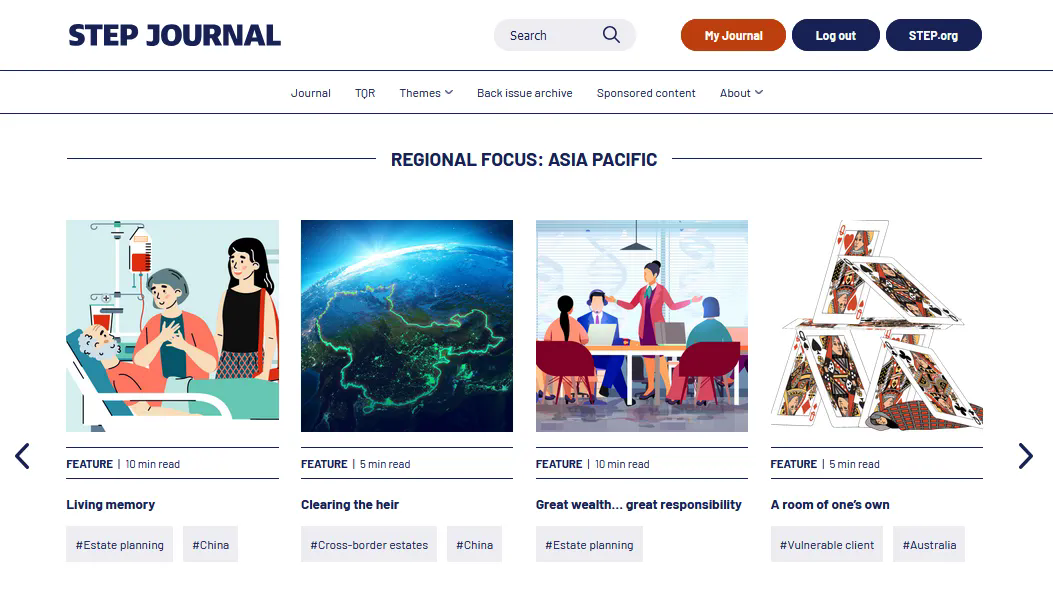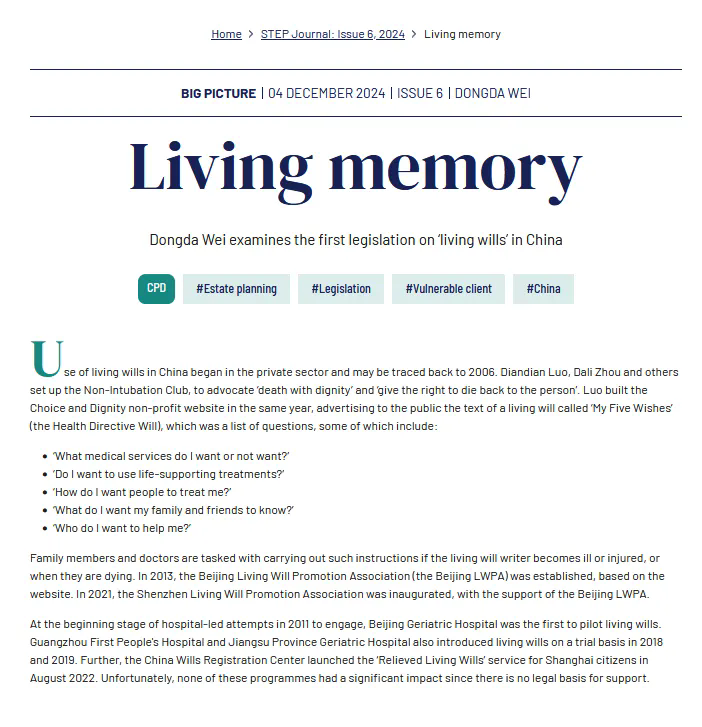
The sixth issue of STEP Journal 2024 has recently been released. This issue focuses on technology and digital assets, with a regional focus on the Asia-Pacific region. King&Capital attorney and STEP China board member Dongda Wei contributed an article on “living wills” to this issue of the STEP Journal, which briefly analyzes the first legislation on living wills in mainland China. The article briefly analyzes the first legislation on the “living will” system in Mainland China.

STEP Journal Featured Article
With the authorization of STEP China and the author, the Chinese summary of the article is now shared here for the benefit of our colleagues and neighbors, and STEP members can scan the QR code below to view the original article and more professional content of this issue of STEP Journal in English or Chinese.

Scan the QR code to view the original article
Article Summary
Navigating the Last Mile of Life: Analyzing the First Legislation on “Advance Directives” in Mainland China
Dongda Wei
In July 2022, Shenzhen adopted a revised version of the Medical Regulations of the Shenzhen Special Economic Zone (SZSEZ), in which Article 78 stipulates the legal effect of a patient's advance directive, requiring healthcare organizations to respect the patient's choice of medical treatment at the end of his or her life or at the end of his or her life. This is the first legal regulation on “advance directives” in mainland China, but there are some problems and challenges in the practical application of the regulation.

Major Analysis
Firstly, the subject of making an advance directive is still unclear. Although it is stipulated that it should be provided by the patient or his/her next of kin, it is not clear whether it includes intended guardians and legatees, and whether next of kin can make an advance directive on behalf of the patient. Second, the lack of an official model living will and a third-party safekeeping mechanism makes it difficult for healthcare organizations to confirm the authenticity and validity of an advance directive. In addition, there are no clear provisions on whether the manner of making, amending or revoking an advance directive needs to be consistent, and the relationship between notarized and witnessed methods.
At the execution level, healthcare organizations and attending physicians face greater risks. The lack of objective criteria for the abandonment of treatment and how to balance the relationship between medical resuscitation and respect for advance directives make it possible for medical institutions to face moral and legal liability risks when executing advance directives. In addition, the opinions of the patient's next of kin often play an important role in medical decision-making, and the patient's own wishes may be ignored. The legal responsibility of medical institutions to carry out advance directives made without the patient's full understanding of his or her condition is also unclear.
In summary, although the Shenzhen Special Economic Zone Medical Regulations provide a legal basis for advance directives, there are still many challenges and uncertainties in the implementation and enforcement of advance directives, and further theoretical research and practical exploration are needed to improve the relevant supporting measures. (The summary is for reference only. For detailed analysis, please refer to the author's original article.)



